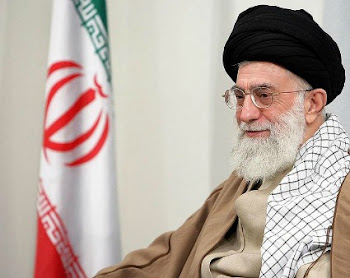Why Ali (a.s.)?
|

On the 18th of Thul-Hijja, during the Pilgrimage of Farewell that the Prophet (p) performed, along with his best companion, Imam Ali (a.s.), the Prophet (p) received a revelation from Gabriel: “O Messenger! Deliver what has been revealed to you from your Lord; and if you do it not, then you have not delivered His message, and Allah will protect you from the people; surely Allah will not guide the unbelieving people” (5:67), at Ghadir Khum, which is a valley between Mecca and Al-Medina.
In the speech delivered by the Prophet (p) at Ghadir Khum, he pronounced that Imam Ali (a.s.) is going to be his successor. He was the only man who could continue the role of the Prophet (p) who could fulfill the role of enlightening people’s hearts and minds with Islam. The mission of conveying the message of Islam to the people was successfully accomplished by the Prophet (p). However, the Islamic reality at that time was still facing challenges and predicaments. Who could be more qualified than Imam Ali (a.s.), the Prophet (p)’ cousin, son in law, and closet companion, to assume the position of his successor?
The character of Imam Ali (a.s.) was so exquisite that even a hypocrite would love him, as he was a man of courage and wisdom. He was an embodiment of faith as he had given his all to Allah, as mentioned in the Quran: “And among men is he who sells his himself to seek the satisfaction of Allah, and Allah is affectionate to His servants.” (2:207)
His knowledge, justice, courage, and asceticism were directed to serve Islam. As mentioned by His Eminence, Sayyed Fadlullah: “the believer who lives within himself in the full depth of belief must feel love and allegiance to anyone who manifests belief, and Ali (a.s.) was the deep manifestation of belief.”
In addition, Ali (a.s.), even before the dawn of Islam lived the spirit of Islam while his people indulged in a religion of stone worshiping and polytheism, which he ultimately rejected. As narrated in Nahj Al-Balagha (Peak of Eloquence), by Imam Ali (a.s.): “From the time of the Prophet (p)’s weaning, he was on the path of high character and good behavior. By day and night, I used to follow him like a young camel following the foot prints of its mother; everyday he would show me one of his fine qualities and command me to pay heed to it… He used to go into seclusion at the cave of Hira’, where I saw him but no one else saw him. In those days, Islam did not exist in any house except that of the Prophet and Khadijah, me being the third with them; I used to see the light of the revelation and message, and breathe the scent of Prophethood.”
Ali (a.s.)’s childhood was shaped by the Prophet (p) himself. He immediately embraced Islam as the Prophet (a.s.) called him for Islam. When one asked him about whether he consulted his father before embracing Islam, Imam Ali (a.s.)’s response was as following: “God did not consult my father when He created me!” The story is a proof of the Imam (a.s.)’s awareness of the question of faith in its full dimension and spirit.
The relationship between the two was not only that of kinship as they were cousins, but also of companionship as they shouldered a responsibility towards Islam. While the Prophet (p) was responsible for the spreading of the Islamic message, Imam Ali (a.s.) was the sword that defended Islam. He was the one who was willing to sacrifice his own life for the sake of Islam as he slept in the Prophet (p)’s bed at the night of emigration; which further emphasizes how deeply the Prophet (p) trusted him, and how much he was affiliated by him.
Imam Ali (a.s.) was also a hero at several battles including Badr, Uhud, Hunain, Ahzab, and Khaibar. He was the most competent fighter and the mightiest of them all. It is important to note that Ali (a.s.)’s concern, even during war, was delivering the message of Islam. To him, war was not something that fed his ego and in which he showed his strength and chivalry, nor did he like the bloodshed. During the battle of Siffin, when the non-believers started questioning the reason behind the delay and accused him of being afraid of death, the Imam (a.s.) responded: “As for your wondering if this is because of me not willing to die, I swear by God that I do not care whether I enter death, or death comes to me. I have not postponed the war one day except in the hope that a group of the army will come over to me, be guided to me, and attracted to my light, and this is more preferable to me than killing them in a state of deviance and ending up shouldering their sins.”
Ali (a.s.) was indeed a hero whose personality encompassed all the characteristics of a leader. As mentioned by the Prophet (p), he is the man who “loves God and His Messenger, and is a loved by Allah and His Messenger as well, a man who attacks rather than flee, a man who will not return until he has achieved victory.”
Inspired by “Ghedir, an Islamic perspective” by His Eminence, Sayyed Muhammad Hussein Fadlullah.
In the speech delivered by the Prophet (p) at Ghadir Khum, he pronounced that Imam Ali (a.s.) is going to be his successor. He was the only man who could continue the role of the Prophet (p) who could fulfill the role of enlightening people’s hearts and minds with Islam. The mission of conveying the message of Islam to the people was successfully accomplished by the Prophet (p). However, the Islamic reality at that time was still facing challenges and predicaments. Who could be more qualified than Imam Ali (a.s.), the Prophet (p)’ cousin, son in law, and closet companion, to assume the position of his successor?
The character of Imam Ali (a.s.) was so exquisite that even a hypocrite would love him, as he was a man of courage and wisdom. He was an embodiment of faith as he had given his all to Allah, as mentioned in the Quran: “And among men is he who sells his himself to seek the satisfaction of Allah, and Allah is affectionate to His servants.” (2:207)
His knowledge, justice, courage, and asceticism were directed to serve Islam. As mentioned by His Eminence, Sayyed Fadlullah: “the believer who lives within himself in the full depth of belief must feel love and allegiance to anyone who manifests belief, and Ali (a.s.) was the deep manifestation of belief.”
In addition, Ali (a.s.), even before the dawn of Islam lived the spirit of Islam while his people indulged in a religion of stone worshiping and polytheism, which he ultimately rejected. As narrated in Nahj Al-Balagha (Peak of Eloquence), by Imam Ali (a.s.): “From the time of the Prophet (p)’s weaning, he was on the path of high character and good behavior. By day and night, I used to follow him like a young camel following the foot prints of its mother; everyday he would show me one of his fine qualities and command me to pay heed to it… He used to go into seclusion at the cave of Hira’, where I saw him but no one else saw him. In those days, Islam did not exist in any house except that of the Prophet and Khadijah, me being the third with them; I used to see the light of the revelation and message, and breathe the scent of Prophethood.”
Ali (a.s.)’s childhood was shaped by the Prophet (p) himself. He immediately embraced Islam as the Prophet (a.s.) called him for Islam. When one asked him about whether he consulted his father before embracing Islam, Imam Ali (a.s.)’s response was as following: “God did not consult my father when He created me!” The story is a proof of the Imam (a.s.)’s awareness of the question of faith in its full dimension and spirit.
The relationship between the two was not only that of kinship as they were cousins, but also of companionship as they shouldered a responsibility towards Islam. While the Prophet (p) was responsible for the spreading of the Islamic message, Imam Ali (a.s.) was the sword that defended Islam. He was the one who was willing to sacrifice his own life for the sake of Islam as he slept in the Prophet (p)’s bed at the night of emigration; which further emphasizes how deeply the Prophet (p) trusted him, and how much he was affiliated by him.
Imam Ali (a.s.) was also a hero at several battles including Badr, Uhud, Hunain, Ahzab, and Khaibar. He was the most competent fighter and the mightiest of them all. It is important to note that Ali (a.s.)’s concern, even during war, was delivering the message of Islam. To him, war was not something that fed his ego and in which he showed his strength and chivalry, nor did he like the bloodshed. During the battle of Siffin, when the non-believers started questioning the reason behind the delay and accused him of being afraid of death, the Imam (a.s.) responded: “As for your wondering if this is because of me not willing to die, I swear by God that I do not care whether I enter death, or death comes to me. I have not postponed the war one day except in the hope that a group of the army will come over to me, be guided to me, and attracted to my light, and this is more preferable to me than killing them in a state of deviance and ending up shouldering their sins.”
Ali (a.s.) was indeed a hero whose personality encompassed all the characteristics of a leader. As mentioned by the Prophet (p), he is the man who “loves God and His Messenger, and is a loved by Allah and His Messenger as well, a man who attacks rather than flee, a man who will not return until he has achieved victory.”
Inspired by “Ghedir, an Islamic perspective” by His Eminence, Sayyed Muhammad Hussein Fadlullah.





















0 comments:
Catat Ulasan